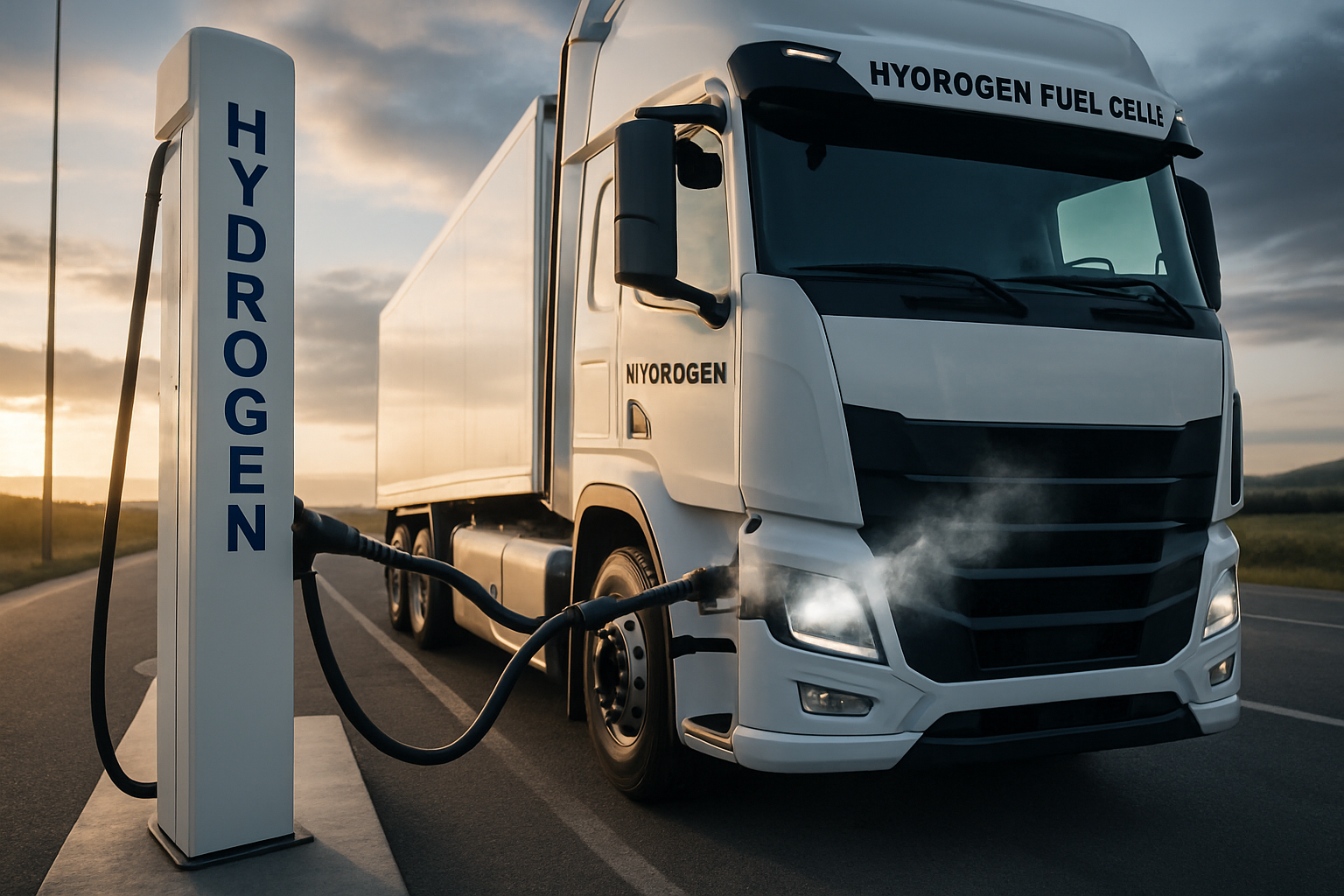Hydrogen Fuel Cells: The Quiet Revolution in Heavy-Duty Transport
The world of heavy-duty transportation is on the brink of a transformative shift, with hydrogen fuel cell technology emerging as a promising solution to decarbonize long-haul trucking and industrial vehicles. This groundbreaking technology offers a compelling blend of zero-emissions operation, rapid refueling times, and the potential for extended range – attributes that could revolutionize the logistics and transportation sectors. As we delve into the world of hydrogen fuel cells, we'll explore their unique advantages, current applications, and the challenges that lie ahead in their widespread adoption.

Advantages for Heavy-Duty Transport
The application of hydrogen fuel cells in heavy-duty vehicles offers several distinct advantages over traditional diesel engines and battery-electric alternatives. First and foremost is the potential for zero-emission operation, which is crucial for meeting increasingly stringent environmental regulations. Unlike battery-electric vehicles, hydrogen fuel cell vehicles can be refueled in a matter of minutes, comparable to conventional diesel trucks. This rapid refueling capability is particularly valuable in the logistics sector, where vehicle downtime directly impacts operational efficiency.
Current Applications and Pilot Projects
Several major truck manufacturers and logistics companies are already investing heavily in hydrogen fuel cell technology. In Europe, a consortium of companies is testing a fleet of hydrogen-powered trucks on long-haul routes. These vehicles boast ranges of up to 1,000 kilometers on a single tank of hydrogen, demonstrating the technology’s potential for long-distance transportation. In ports and industrial settings, hydrogen fuel cell forklifts and yard trucks are gaining traction, offering the benefits of zero-emission operation in enclosed spaces where air quality is a critical concern.
Infrastructure Challenges and Solutions
One of the primary obstacles to widespread adoption of hydrogen fuel cell vehicles is the lack of refueling infrastructure. However, this challenge is being addressed through strategic partnerships between energy companies, governments, and vehicle manufacturers. Plans are underway to establish hydrogen refueling corridors along major trucking routes, with some projects already operational. These initiatives are crucial for building confidence in the technology and encouraging fleet operators to make the switch to hydrogen-powered vehicles.
The Role of Green Hydrogen Production
For hydrogen fuel cells to truly deliver on their promise of sustainability, the hydrogen itself must be produced using renewable energy sources. This concept, known as green hydrogen, involves using electricity from solar, wind, or hydroelectric sources to split water into hydrogen and oxygen through electrolysis. While currently more expensive than hydrogen produced from fossil fuels, the cost of green hydrogen is expected to decrease significantly as production scales up and renewable energy becomes more abundant.
Economic Considerations and Future Outlook
The economics of hydrogen fuel cell vehicles are rapidly improving, driven by technological advancements and increasing scale of production. While the initial cost of these vehicles remains higher than their diesel counterparts, the total cost of ownership is becoming increasingly competitive when factors such as fuel efficiency, maintenance costs, and potential carbon taxes are considered. As governments worldwide implement stricter emissions regulations and offer incentives for clean transportation, the business case for hydrogen fuel cell vehicles in heavy-duty applications is strengthening.
In conclusion, hydrogen fuel cell technology represents a promising pathway to decarbonize the heavy-duty transportation sector. With its unique combination of zero-emission operation, rapid refueling, and long-range capabilities, this technology is poised to play a significant role in the future of logistics and industrial vehicle operations. As infrastructure expands and costs continue to decrease, we can expect to see hydrogen fuel cell vehicles becoming an increasingly common sight on our roads and in our industrial facilities, quietly ushering in a new era of clean, efficient transportation.





